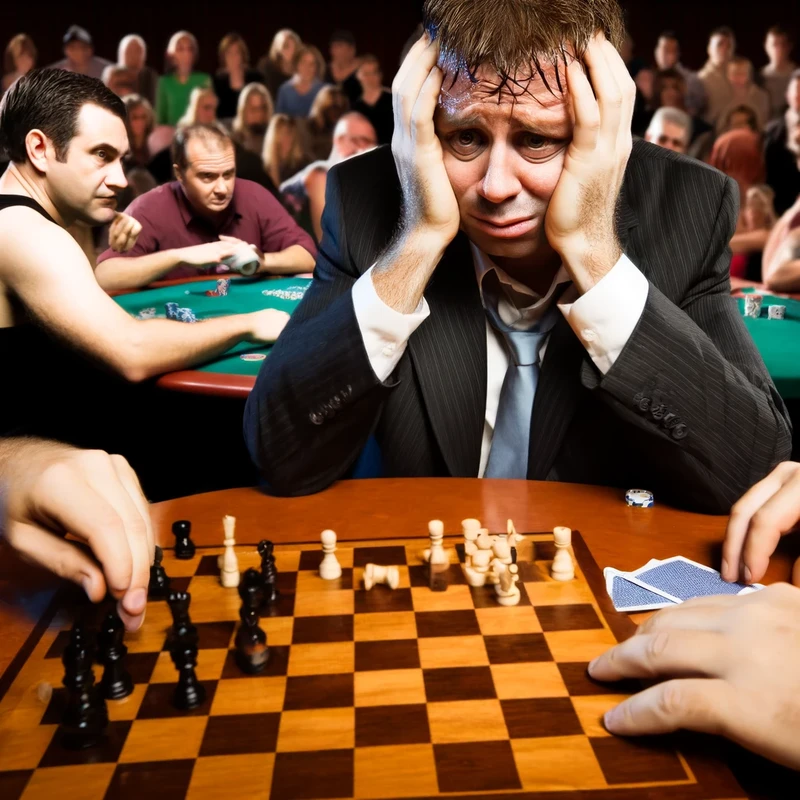
The Power Of Applying Pressure In Mind Sports
Discover the advantages of applying pressure in strategic gamesIntroduction
One key strategy we can learn from exceptional players in various mental and physical sports is the skilful application of pressure on our opponents. This tactic can often be the difference between victory and defeat.
There are many advantages to applying pressure on the opponent:
1. Forcing Mistakes
Strong players are unlikely to make severe mistakes out of nowhere. But when continually faced with difficult questions, they are far more likely to make mistakes.
2. Controlling The Game
Applying pressure allows one to dictate the pace and direction of the game. You can steer play toward situations where you are more robust and the opponent is weaker.
3. Psychological Pressure
Continual aggression is quite tricky for most people to deal with on a psychological level. They may become fatigued or even tilt and do 'anything' (including suicidal decisions) to try and break out of the pattern of continual attack.

4. Exploiting Weaknesses
While every player has weaknesses, strong players often learn to conceal/minimise their weaknesses by avoiding certain situations or following a simple process to mitigate the impact of their weaknesses.
It's much harder to do this when under constant pressure. Furthermore, seeing our opponent's response to aggression can reveal tendencies and their capacity to handle stressful situations.
5. Creating Opportunities
Aggressive play often opens up opportunities not afforded by a more passive approach. For instance, the opponent may need strategic concessions to hold back our initiative.
Or, they will have to fold out their share of equity with a draw because we intelligently chose a bet size that doesn't price them in to hit their draw.
6. Reducing The Opponent's Options
Taking the initiative reduces the opponent's options, often making their counters more predictable (and more accessible to plan a response against). A rash counterattack or a poorly timed bluff raise could see the opponent's game abruptly end.
7. Building A Lead
A frequent path to victory in strategic games is the 'accountancy' style of accumulating advantages, intermittently transforming some advantages into more powerful assets. (A simple example would be turning a temporary attack on the king into a permanent material advantage).
This can also force opponents into increasingly desperate strategies to catch up. Or, in the case of poker, the big stack can apply continual ICM pressure to steadily accumulate chips, as the medium stacks would lose a lot more money by getting knocked out by the big stack (versus folding everything and 'laddering' to a higher payout by waiting for the short stacks to bust).
Have Your Say
I focused on chess and poker examples, but I'm interested in knowing examples from physical sports.
Discuss these points in the comments :)
More blog posts by Craze

A Simple 3-Step Process For Analyzing Your Chess Games
Discover how to learn the correct lessons from each game you play, without wasting lots of time on o…
The Main Plans In The Carlsbad Structure
Discover the main plans for both sides in the Carlsbad pawn structure
Gukesh's Best Wins In 2022
See how Gukesh broke past 2700 FIDE in 2022, and outplayed Carlsen in a blitz game!